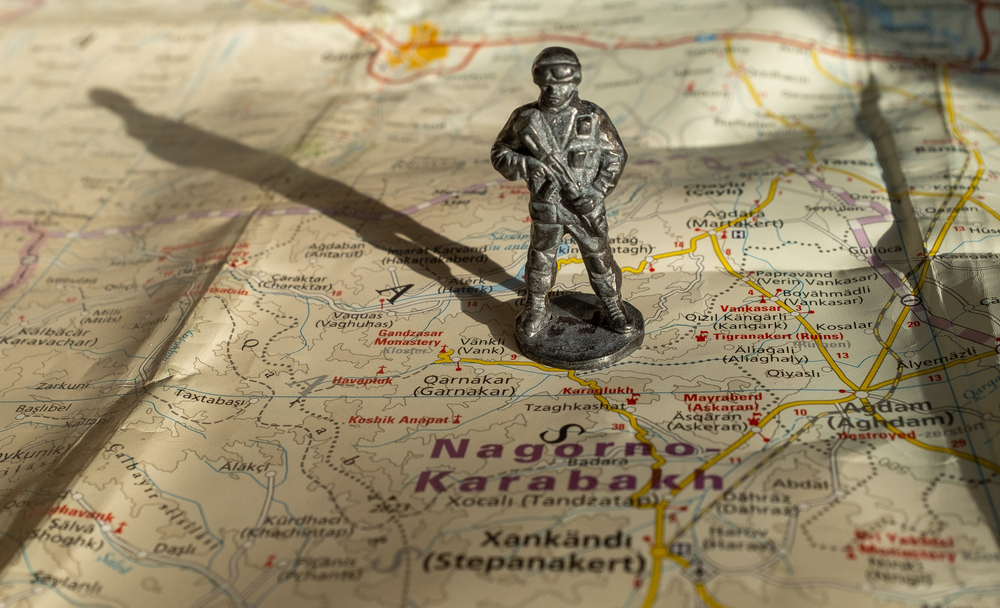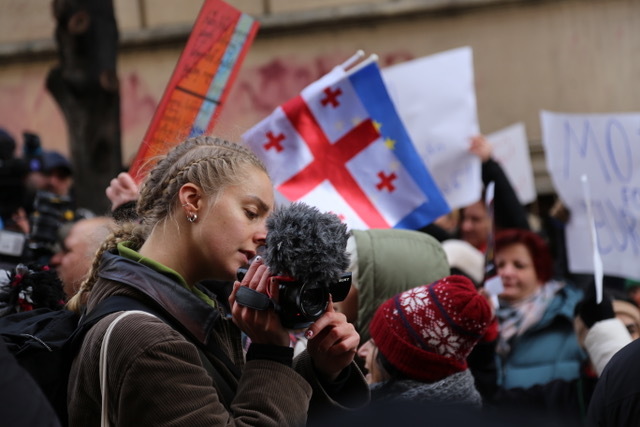Armenia-Azerbaijan, tensions rise as Baku establishes border control on Lachin Corridor
On April 23, Azerbaijan announced the creation of a checkpoint on the Lachin corridor, a move immediately criticized by the de facto authorities of Nagorno Karabakh and those of Armenia. The United States and France have also expressed concerns

Armenia-Azerbaijan-tensioni-in-aumento-sul-corridoio-di-Lachin
© fifg/Shutterstock
Azerbaijan has announced the establishment of a border post on the Lachin corridor – a significant development in the aftermath of the 2020 Karabakh war. The installation of the post on 23 April represents another assertion of sovereignty by Azerbaijan not only on the strategic land route from Armenia but also on the besieged breakaway region of Nagorno Karabakh to which it connects.
The step also poses additional challenges and implications for Karabakh’s ethnic Armenian population as mediation efforts appear to falter. This follows over 133 days of travel along the road being seriously restricted by what is claimed to be an environmental protest by Azerbaijani activists. Only the Russian peacekeeping contingent and the International Committee of the Red Cross (ICRC) have used the route since.
Baku charges that the highway, along with an alternative route only recently confirmed, was being used for “the rotation of personnel of Armenian armed forces that continue to be illegally stationed in the territory of Azerbaijan, the transfer of weapons and ammunition, entrance of terrorists, as well as illicit trafficking of natural resources.”
Yerevan denies the claims.
The installation of an Azerbaijani post on the strategic highway, however, had long been anticipated and can also be linked to the lack of progress on unblocking regional transport and communication routes in the region, as per the November 2020 trilateral ceasefire statement. Both the Lachin Corridor and a land link between Azerbaijan and Nakhichevan via Armenia were included, but disagreement over border and customs controls frustrated progress on the second.
Criticism of the installation of the Azerbaijani post immediately came from the de facto authorities of the former Soviet-era Nagorno Karabakh Autonomous Oblast (NKAO). “We appeal to the sides of the Trilateral Statement and especially to the Russian Federation to immediately start discussions on […] preventing the establishment of an Azerbaijani checkpoint […]”, it posted on Facebook.
However, many commentators note, the location of the Azerbaijani checkpoint on the Hakari bridge was already in the immediate vicinity of the Russian peacekeepers, highlighting how it is unlikely the move could have gone unnoticed before the official announcement. Indeed, in an Armenian News Network – Groong podcast on 7 April, Armenian activists claimed that work was underway beforehand.
But there is no other confirmation of this from other sources, and if some opposition activists claim that Armenian, Russian, and Karabakh officials knew of the border check in advance, an official statement from Yerevan never acknowledged it.
“We call on the Russian Federation to finally fulfil the obligation under provision 6 of the Trilateral statement by eliminating the illegal blockade of the Lachin corridor and ensuring the withdrawal of Azerbaijani forces from the entire security zone of the corridor”, the Armenian Ministry of Foreign Affairs said in a statement which also referenced a February ruling by the International Court of Justice (ICJ) that Azerbaijan should “take all measures at its disposal to ensure unimpeded movement of persons, vehicles and cargo along the Lachin Corridor in both directions”.
In response, Baku counters that, as Armenia says it recognises Azerbaijan’s territorial integrity in statements signed last year, the matter is an internal one, leading the opposition in Armenia to allege that Yerevan was at fault for doing so, most recently last week in a speech by Prime Minister Nikol Pashinyan. The United States and France, however, have also voiced their concerns.
“The United States is deeply concerned that Azerbaijan’s establishment of a checkpoint on the Lachin corridor undermines efforts to establish confidence in the peace process”, the U.S. State Department remarked . “We reiterate that there should be free and open movement of people and commerce on the Lachin corridor and call on the parties to resume peace talks […]”.
In an equally short release , France took the same position. The Russian Foreign Ministry remained silent until the following day.
“We especially note the unacceptability of any unilateral steps in violation of the basic provisions of the tripartite statement of the leaders of Russia, Azerbaijan and Armenia of November 9, 2020, whether it is an uncoordinated change in the mode of operation of the Lachin Corridor or attempts to use it for purposes not in line with the peace agenda”, it read, likely avoiding taking sides.
It did, however, add that "the local population should not suffer and no obstacles should be created for its livelihoods”, while also criticising both the European Union and the U.S.. It specifically warned of “external Western players and local Russophobic elements working on their opportunistic agenda […]”.
Some, however, believe that the checkpoint highlights the need for a resolution to the conflict. “The events […] on the Lachin corridor indicate that we are now moving on from the Ceasefire Agreement”, tweeted Tim Potier, a Tufts University International Law professor. “It is too early to be sure, but I believe that these events mean Armenia and Azerbaijan are closer to signing a peace treaty, not further away”.
Yet, few others share that optimism and many warn that Karabakh is likely to experience further depopulation amid an increasingly uncertain and unpredictable future. There is nonetheless at least consensus among international actors that the conflict must be resolved, though how remains unclear.
“There is no alternative to the implementation of the trilateral agreements between Russia, Azerbaijan, and Armenia”, Russian Presidential Press Secretary Dmitry Peskov was quoted as saying on 24 April in what appeared to be another jab at Brussels and Washington. “We are working with the capitals, I mean both with Yerevan and Baku. And we will continue this work”, he added.
Tag:
Read more
11/05/2006, Risto Karajkov







